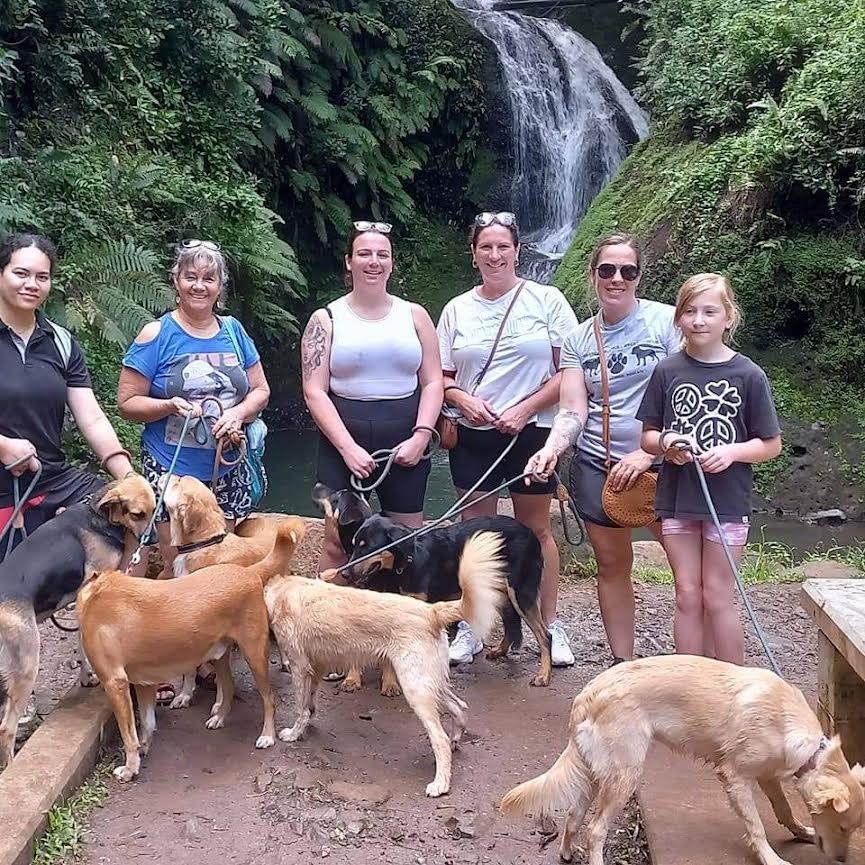SPCA ‘stretched thin’, urging visiting tourists to donate
Saturday 1 July 2023 | Written by Joanne Holden | Published in Local, National

Cook Islands SPCA is introducing a $25 fee for tourists to visit its shelter to combat rising costs. 23063016
As the number of abandoned dogs coming into the Cook Islands SPCA triples and pet food prices sky-rocket, the animal welfare organisation is urging visiting tourists to give a fixed donation to help it stay afloat. Joanne Holden reports.
SPCA president and shelter manager David Pokia said as of July, the cost for tourists to drop into the organisation’s base in Vaimaanga will be $25 per person, with discounts available for groups and repeat visitors only needing to pitch in $15.
“It’s just getting too expensive to keep running while letting people come and go,” Pokia said.
“Locals don’t have to pay to walk our dogs, only tourists.”
Previously, entry was free for everybody.
“One week we can have 20 tourists through without a single donation, then someone can stick their hand through the fence with $200,” Pokia said.
“What we need is more little donations.
“People can even bring up a bag of dog food or flea and worming treatments, just things like that helps with costs as well.”
Pokia said the price of an eight-kilogram bag of dog food was $55, compared to $34 just six months ago.
“And, sometimes, there’s no dog food on the island.”
The inflation was compounded by the increasing number of dogs needing to be housed at the shelter, from 12 dogs two years ago to 35 today – not including the 11 stray dogs Pokia was looking after at his home.
“The numbers doubled after the borders opened and doubled again just a few months ago.”
Pokia said the announcement that the organisation was ‘stretched thin’ and would be introducing a visitor fee had attracted extra support on social media.
“We have people donating to us who haven’t been to Rarotonga.”
Getting visitors could be “feast or famine”, Pokia said.
“Today [Friday], for example, we had nobody.
“Last public holiday, we had people flowing in. We were open until 3pm because we’d come back from walking the dogs to the waterfall with one group, and there’d be another one waiting.”
Pokia said walking with tourists was a great tool for socialising the dogs.
“The more contact our dogs have with people, the better they are as a pet,” he said.
“I want everyone to have fun – the dogs, the tourists, and the volunteers.”
Pokia said the organisation had secured private funding for solar panels to bring electricity and water pressure to the facility.
Meanwhile, the shelter would soon be getting its first full-time worker, freeing Pokia up to help with “rounding up dogs and having them desexed”.














































